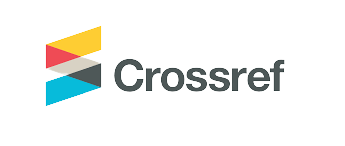Implementation of Gamification in Al-Quran Learning at Madrasah Diniyah al-Iman Kotabumi
Keywords:
Gamification, Al-Quran Learning, Madrasah Diniyah, Student Engagement, Digital EducationAbstract
This study explores the implementation of gamification in Al-Quran learning at Madrasah Diniyah al-Amiin Kotabumi as an effort to enhance students' engagement, motivation, and learning outcomes. The research aims to analyze how gamification elements such as points, badges, leaderboards, and interactive challenges are integrated into the learning process, as well as their impact on students’ interest and memorization skills. A qualitative descriptive method was employed through observation, interviews with teachers and students, and documentation review. The findings reveal that gamification strategies successfully increase student participation and create a more enjoyable learning atmosphere, which in turn improves students’ ability to memorize and understand the Qur’an. However, the study also identifies several challenges, including limited teacher training in digital tools and the need for adequate facilities. Overall, gamification proves to be an effective approach for optimizing Al-Quran learning in a traditional madrasah setting when supported by proper planning and resources.
References
Amaliya, S., Monika, I. M., Mar, I., & Hidayah, A. (2025). Qiro ’ -Qori ’: Pelatihan Dasar Al-Qur ’ an pada Anak Down Syndrome Berbasis Gamifikasi Ngarun ( Paningal lan Pangrungu ). PAKARTI: Jurnal Penelitian Dan Pengembangan Sosial Budaya, 1(July).
Cahyaningtyas, R. D., Wardani, A. E., & Ali, M. M. (2025). Islamic Character Education in the Digital Era : A Case Study of Junior High Schools. JISEI: Journal of Islamic Studies and Educational Innovation, 01(01).
Creswell, J. W. (2018). Research Design: Qualitative, Quantitative, and Mixed Methods Approaches. Thousand Oaks: CA: SAGE Publications.
Deka, D. U. (2020). Gamifikasi: Panduan Menggunakan Tools Gamifikasi dalam Pembelajaran. Malang: Lintang Media.
Fanani, A. B. (2025). Contextualization of Ta ’ zir and Amar Ma ’ ruf Nahi Munkar to Address Illegal Online Loans. Academia Open, 10(2), 1–14. https://doi.org/10.21070/acopen.10.2025.12025
Hasruddin, D. (2021). Islam dan Pluralisme Pendidikan Agama. Al-Riwayah: Jurnal Kependidikan, 13(2). https://doi.org/https://e-jurnal.iainsorong.ac.id/index.php/Al-Riwayah.
Huberman, A. M., & Jhonny, S. (2014). Qualitative Data Analysis a Methods Sourcebook. America: Arizona State University.
Ika, I., Wasmin, A., Oktori, S., & Nurhalimah, S. (2023). Kewajiban Menuntut Ilmu Mengembangkan Dan Mengamalkannya. Jurnal Ilmu Pendidikan Islam, 1(3), 110–117. https://doi.org/https://doi.org/10.59059/al-tarbiyah.v1i3.319
Islam, J. P. (2022). Management of the Al-Qur’an Recitation Tahsin Program to Improve the Quality of Students’ Al-Qur’an Reading in Tahfidz’s House for the Recitation of the Universe. Al-Ulum: Jurnal Pendidikan Islam, 3(3), 198–208. https://doi.org/10.56114/al-ulum.v3i3.432
Lilis, R. (2017). Gamifikasi Nilai-Nilai Tauhid untuk Pendidikan Anak Usia Dini (PAUD). JTP: Jurnal Teknolog Pembelajaran, 7(2).
Mannan, A. F., & Annisa, T. N. (2025). Analisis Longitudinal Pengaruh Gamifikasi dalam E-Learning terhadap Motivasi , Partisipasi , dan Kinerja Akademik Siswa. JIM: Jurnal Ilmu Multidisiplin Volume, 1, 258–267.
Mulenga, R., & Shilongo, H. (2024). Academic Integrity in Higher Education: Understanding and Addressing Plagiarism. Acta Pedagogia Asiana, 3(1), 30–43. https://doi.org/10.53623/apga.v3i1.337
Parhan, M., Syafitri, R., Rahmananda, S. S., & Aurora, M. E. S. (2022). Konsep Integrasi Pendidikan Islam Dalam. Al Fikr, 8(1), 41–48.
Pipit, N., Kasan, B., & Mursid. (2022). Adaptation Strategy Of Rohani Islam (Rohis) Of Sma Negeri 11 Semarang In The New Normal. Annual International Conference on Islamic Education for Students (AICOIES 2022), (Aicoies), 630–640.
Saharani, L., & Ningsih, A. D. (2025). Implementasi Penggunaan Media Pembelajaran Berbasis Gamifikasi pada Pembelajaran Tahfidz di MTs Al-Washliyah Medan Krio. Edu Society: Jurnal Pendidikan, Ilmu Sosial, Dan Pengabdian Kepada Masyarakat, 5(1), 287–295.
Sahroni, Furqoni, H., & Martoyo. (2025). Comprehensive Review of the Book Ta ’ lim al-Muta ’ alim in the Context of Developing Teaching Materials for Creed and Morals in Madrasah Aliyah. JISEI: Journal of Islamic Studies and Educational Innovation, 01(01), 93–100.
Setiadji, B. (2020). Konsep Pendekatan Behaviorisme B. F. Skinner Dan Relevansinya Terhadap Tujuan Pendidikan Islam. Institut Agama Islam Negeri Ponorogo, (April).
Siregar, D. ‘Aeyn A. (2022). Ex Post Facto Dari Implementasi Program Tahfiz Al-Qur’an Dengan Metode Talaqqi Dan Musyafahah Melalui Target Hariandi Smp It Ad Durrah. Jurnal Tinta, 4(2), 39–51.
Solihin, I., Hasanah, A., & Fajrussalam, H. (2020). Core Ethical Values of Character Education Based on Islamic Values in Islamic Boarding Schools. International Journal on Advanced Science, Education, and Religion, 3(2), 21–33. https://doi.org/10.33648/ijoaser.v3i2.51
Sugiyono. (2015). Metode Penelitian Pendidikan (Pendekatan Kuantitatif, Kualitatif, Dan R&D). Bandung: Alfabeta.
Susanto, R., Munir, A., & Basuki, B. (2025). Preserving the Authenticity of Qirā’āt Sab’ah : A Comparative Study of Musy ā fahah Methods at Al-Hasan and Al-Munawwir Boarding School. Dialogia : Jurnal Studi Islam Dan Sosial, 23(01), 101–121. https://doi.org/10.21154/dialogia.v23i01.10500
Susanto, R., & Sugiyar. (2023). Implementation of Mutammimah Book Learning on the Reading Ability of Kutub al-Turats at Madrasah Riyadlotusy Syubban Ponorogo. Edukasi Lingua Sastra, 21(1), 207–2017. https://doi.org/https://doi.org/10.47637/elsa.v21i2.667
Susanto, R., & Syahrudin, S. (2024). Social Transformation Through Education: Building a Caring and Empowered Generation. Ngabari : Jurnal Studi Islam Dan Sosial, 17(2), 37–48.
Susanto, R., Widodo, W., & Kolis, N. (2023). The Implication of the Sima’an Ahad Pahing on the Qur’an Memorization at PPTQ Al-Hasan Ponorogo. Jurnal Kebudayaan, 18(2), 125–132. https://doi.org/10.37680/adabiya.v18i2.2396
Taftahi, J. (2017). Quranic Sciences from Abdul Hamid Farahi ’ s Perspective ( 1863-1930 ). International Journal of Applied Linguistics & English Literature, 2(1). Retrieved from www.ijalel.aiac.org.au
Triventi, M., Nevena, K., Jan, S., Blossfeld, & Hans, P. (2013). Secondary school systems and inequality of educational opportunity in contemporary societies. Social Science Japan, 49, 22–24.
Yahuda, R. D., Susanto, R., Widodo, W., Kolis, N., & Abdillah, B. (2023). Musafahah Method Transformation on Learning Qiraat Sab’ah in PPTQ Al-Hasan Ponorogo. Mashdar: Jurnal Studi Al-Qur’an Dan Hadis, 5(2), 133–146. https://doi.org/10.15548/mashdar.v5i2.7293
Yunita Awwali Salehah, A. W. (2023). Implementasi Tahfiz Al-Qur ’ an dengan Metode Talaqqi. Pendidikan Anak Usia Dini, 4(2), 504–519. https://doi.org/10.37985/murhum.v4i2.235
Downloads
Published
How to Cite
Issue
Section
License
Copyright (c) 2025 Journal of Islamic Studies and Educational Innovation

This work is licensed under a Creative Commons Attribution-ShareAlike 4.0 International License.







